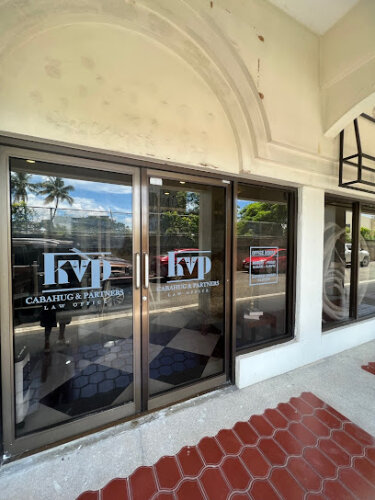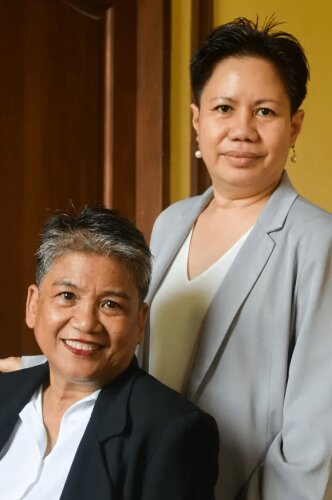Best Divorce & Separation Lawyers in Cebu City
Share your needs with us, get contacted by law firms.
Free. Takes 2 min.
Free Guide to Hiring a Family Lawyer
List of the best lawyers in Cebu City, Philippines
Philippines Divorce & Separation Legal Questions answered by Lawyers
Browse our 54 legal questions about Divorce & Separation in Philippines and read the lawyer answers, or ask your own questions for free.
- Recignizing a foreign divorce
- Hi, I would like to ask how much it would cost and how long it would take for my divorce in the US to be recognized in the Philippines. Our divorce was finalized and approved in 2024. • What are the requirements or documents I need to submit for the... Read more →
-
Lawyer answer by Recososa Law Firm
Hello: Let me guide you on the recognition of a foreign divorce decree here In the Philippines. Under Article 26 of the Family Code of the Philippines, if one of the spouses is a foreign national and obtains a valid...
Read full answer - Cohabitation
- Thank you for taking my question. I'm an Americam married to a Filipina (we married outside of the Philippines) and now separated for 1.5 years. During that time I have been cohabitating with a Filipina and the relationship has ended. However she refuses to leave my condo despite the $10K... Read more →
-
Lawyer answer by Judicial Advocacy Law Firm
Greetings!From your statement and narration, I am assuming that you are referring to the Filipina woman that you were cohabiting, correct? If so, considering that you are not married to her, there is no financial obligation for you to provide...
Read full answer - About Concubinage
- I have heard that my ex-wife will file concubinage against me. We've been married since 2016. im from cebu and she is from negros. After we got married, 2 or 3 days ago, ill back to Cebu City for my work. I'm the only one who is working. We never... Read more →
-
Lawyer answer by Recososa Law Firm
Good day from Recososa Law Firm! In reference to your concern regarding a potential concubinage case to be filed by your former spouse, allow us to provide you with substantial guidance grounded in Philippine law. Under Article 334 of the...
Read full answer
About Divorce & Separation Law in Cebu City, Philippines
The Philippines stands as the only country in the world - other than the Vatican - where divorce is still not legal. However, options such as legal separation, annulment and a declaration of nullity of marriage do exist. Legal separation allows the spouses to live separately but they can't remarry, while an annulment makes a marriage null and void due to circumstances like fraud or psychological incapacity. Cebu City, being a major urban center, follows these national laws.
Why You May Need a Lawyer
Legal representation in any form of marital separation can be crucial, especially in managing issues such as child custody, spousal support, and division of assets. Annulments, legal separations, and declarations of nullity require tangible evidence that needs to be presented efficiently. A lawyer can help you understand your rights, navigate the complexities of the law, and represent your best interests in court.
Local Laws Overview
Philippine laws, and hence Cebu City laws, cite several grounds for legal separation and annulment, including physical abuse, drug addiction, abandonment, sexual infidelity, and attempted murder among others. Under the Family Code of the Philippines, property relations, child custody and support are discussed extensively. In the absence of any marriage settlements, the system of absolute community of property applies.
Frequently Asked Questions
1. Can I remarry after legal separation?
Under Philippine law, remarriage is not permissible after legal separation as the marriage bond is not dissolved. Only an annulment or a declaration of nullity can allow one to remarry.
2. What is the difference between annulment and a declaration of nullity?
An annulment implies that a marriage was valid when entered into, but subsequently becomes invalid due to conditions like fraud or lack of parental consent. A declaration of nullity, on the other hand, states the marriage was never valid, such as when one or both parties are psychologically incapable to fulfill matrimonial obligations.
3. How long does the process of legal separation or annulment take?
The process can take anywhere from 6 months to several years, depending on the complexity of the issues involved and the efficiency of the judicial system.
4. Do I need to appear personally in court?
Yes. Personal testimony is required in cases of legal separation or annulment. Failure to appear can result in your petition being dismissed.
5. What happens to our property after legal separation or annulment?
Typically, the property is divided between the spouses equally, unless otherwise stipulated in the marriage settlement or in the absence of said settlement, mutual agreement between parties.
Additional Resources
You can seek guidance from government bodies such as the Department of Social Welfare and Development, Philippine Commission on Women, and the Public Attorney’s Office. Numerous NGOs also provide counsel and support to those in need of marriage counselling or legal services relating to separation or annulment.
Next Steps
If you believe you need legal advice regarding separation or divorce, the first step is to consult with a legal professional who specializes in Family Law. Prepare all relevant documents and a chronology of significant events. The lawyer can then provide legal advice tailored to your unique circumstances.
Lawzana helps you find the best lawyers and law firms in Cebu City through a curated and pre-screened list of qualified legal professionals. Our platform offers rankings and detailed profiles of attorneys and law firms, allowing you to compare based on practice areas, including Divorce & Separation, experience, and client feedback.
Each profile includes a description of the firm's areas of practice, client reviews, team members and partners, year of establishment, spoken languages, office locations, contact information, social media presence, and any published articles or resources. Most firms on our platform speak English and are experienced in both local and international legal matters.
Get a quote from top-rated law firms in Cebu City, Philippines — quickly, securely, and without unnecessary hassle.
Disclaimer:
The information provided on this page is for general informational purposes only and does not constitute legal advice. While we strive to ensure the accuracy and relevance of the content, legal information may change over time, and interpretations of the law can vary. You should always consult with a qualified legal professional for advice specific to your situation.
We disclaim all liability for actions taken or not taken based on the content of this page. If you believe any information is incorrect or outdated, please contact us, and we will review and update it where appropriate.
















